Upsets are the essence of sports. The potential that one might happen—that an underdog team might beat the odds and win against a superior opponent—is the single greatest hook that keeps us watching sports, and the payoff when they arrive is what makes the whole enterprise worthwhile. Games played on paper wouldn’t be games at all, and we’d lose interest in watching them. Upsets are what make sports exciting.
Distilling a list of the best upsets ever is a significant task, but Men’s Journal has picked through American sports history to come up with 25 timeless classics that are always worthy of a detailed rewatch. Here they are, ordered from No. 25 (which you’ll find to be quite debatable) down to No. 1 (which you’ll find to be a little less debatable). Here’s our roundup of some of the greatest stunners in sports history.
Related: The 10 Best UFC Fights of All Time, Ranked
The Biggest Upsets in Sports History
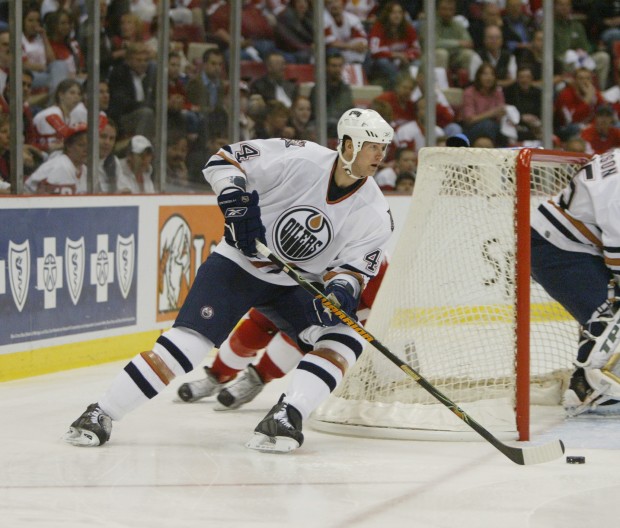
Dave Sandford/Getty Images
This was the first leg of one of the great Cinderella runs in Stanley Cup Playoff history, though not one that ended up in a team actually winning the Cup. The Oilers were the eighth and final seed in the Western Conference in 2006, the league’s first year back after an owners’ lockout canceled the prior season. Going up against the top-seeded Wings and a laundry list of future Hall of Famers (most prominently: defenseman Nicklas Lidstrom and forwards Pavel Datsyuk, Henrik Zetterberg, and Brendan Shanahan), the Oilers pulled off a six-game shocker to advance. They wound up getting all the way to Game 7 of the Stanley Cup Final before the Carolina Hurricanes got the better of them.
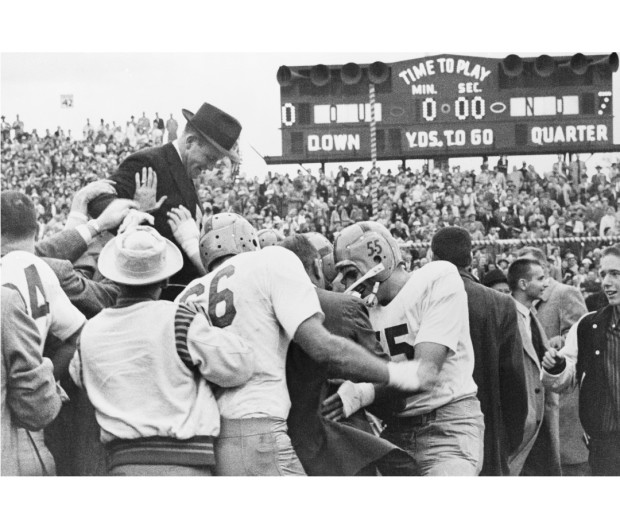
Bettmann/Getty Images
The Sooners were riding a 47-game winning streak, the country’s longest by a mile, when they hosted a struggling Fighting Irish team that entered at just 4–2. The Irish proceeded to shut the Sooners out on their own field. It stood as OU’s only loss of the year and likely was what prevented the program from winning its third consecutive Associated Press national title. Notre Dame finished the season 7–3, underscoring what an upset the Oklahoma game was in the first place.
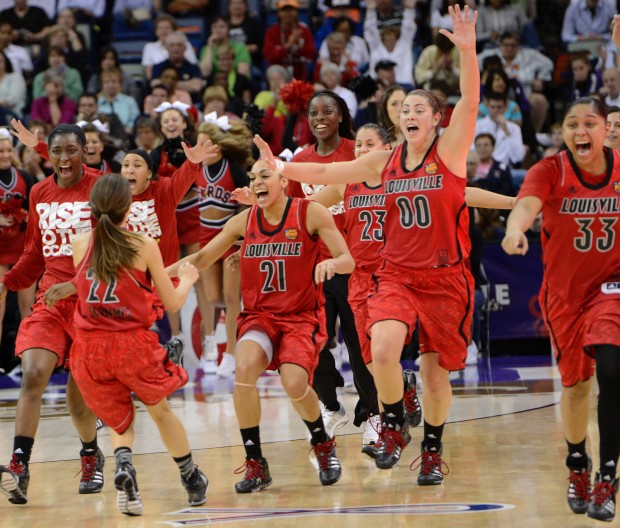
Jamie Schwaberow/NCAA Photos via Getty Images
No. 1 seed Baylor had Brittney Griner, one of the most dominant college basketball players ever, and was widely expected to romp to the Final Four and perhaps a national championship. No. 5 seed Louisville was a nondescript underdog. But when the two teams met, Louisville made a huge splash with a 15-for-20 three-point-shooting night to put the Bears into a blender. After leading by as much as 19, the Cardinals held on to win 82–81 against Baylor in the Sweet 16 meeting. Then they won again to get to the Final Four before falling to Geno Auriemma’s UConn dynasty.
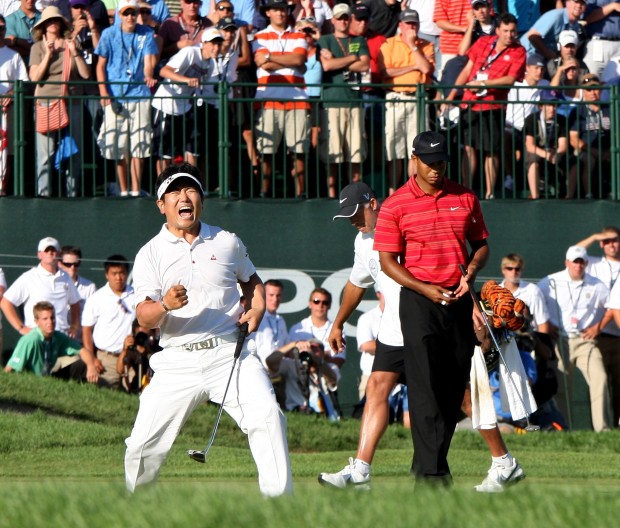
David Cannon/Getty Images
Entering Sunday at the 2009 PGA Championship, Woods was 14-for-14 when he held a major championship lead after 54 holes. After that Sunday, he was 14-for-15. Yang was a pro golf journeyman with just one win on the PGA Tour, but he stared down Woods and beat him by three shots at Hazeltine National Golf Club in Minnesota. Woods, in part for other reasons, was never the same again.
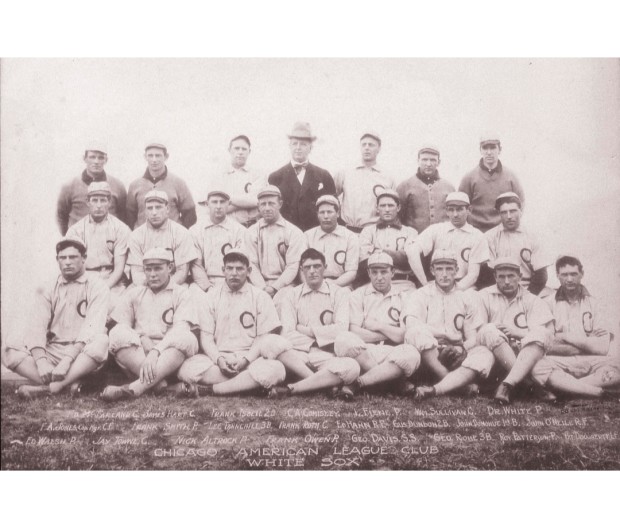
Mark Rucker/Transcendental Graphics, Getty Images
Strictly by the difference between the teams’ winning percentages, the White Sox’s (.616) triumph over the Cubs (.763) marks the biggest upset in World Series history. Yeah, it was nearly prehistoric, and yeah, a lack of interleague play made it hard to compare teams across leagues, but the Cubs had won 116 games (a record that would stand until the next loser on this list tied it) and looked like a good bet to win the Fall Classic. The crosstown Sox, not yet involved in game-rigging scandals, had other ideas.
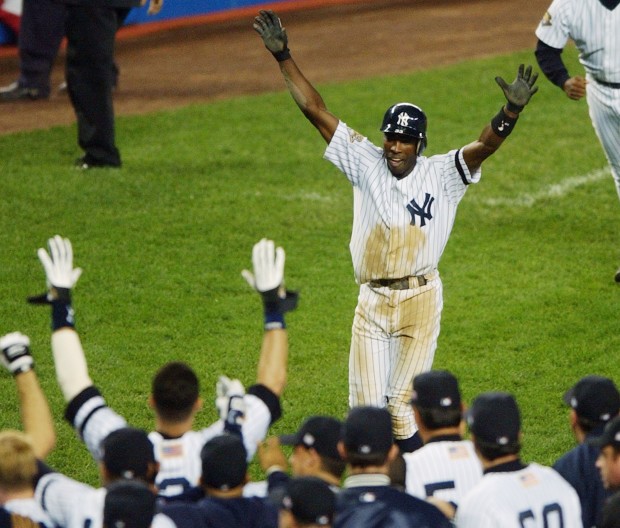
Howard Earl Simmons/NY Daily News Archive via Getty Images
The ‘01 Mariners set a new American League record by winning 116 games, tying the all-time record set by the 1906 Chicago Cubs. They were the most dominant ballclub in several eras of Major League Baseball, and there was no reason they shouldn’t have kept winning all the way through the World Series. Most notably, the club boasted a powerful lineup (Edgar Martinez, John Olerud, Ichiro Suzuki) and a deep pitching staff.
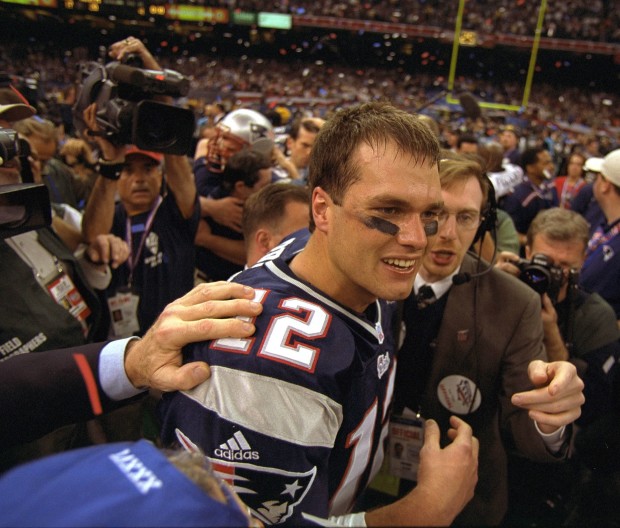
Sporting News via Getty Images
The Patriots were 14-point underdogs in the Super Bowl that concluded the 2001 season. Tom Brady was still just a backup quarterback having a nice little playoff run for a franchise that had yet to win the Big Game, and the Rams (with quarterback Kurt Warner, running back Marshall Faulk, and receivers Isaac Bruce and Torry Holt) were the Greatest Show on Turf.
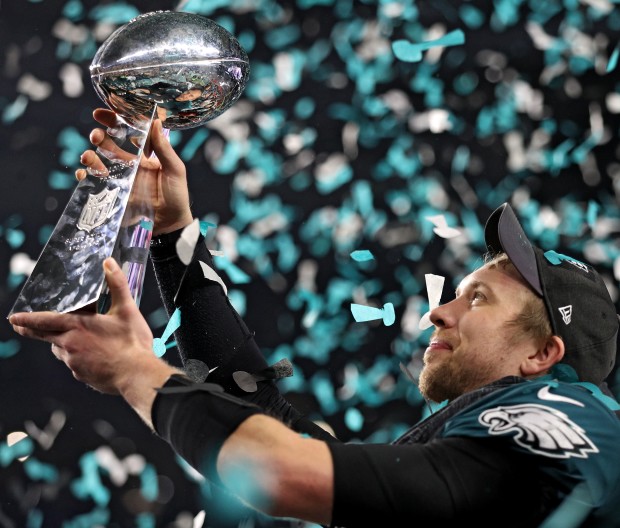
Patrick Smith/Getty Images
In the Patriots’ long run of championship appearances since 2002, they have frequently been both winners and losers. In Super Bowl LII, the Patriots were just 4.5-point favorites, but the gap between them and the Eagles felt much bigger. Philly was working for its first-ever Super Bowl win against a team that had nabbed five since 2001. On top of that, the Eagles had to start a backup quarterback, Nick Foles, against Brady in this game. But the Eagles rolled out one of the best trick plays in the annals of Xs and Os and won 41–33.
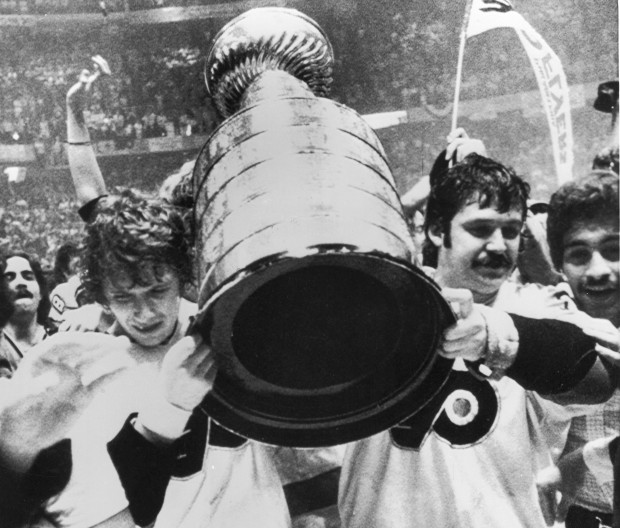
Bruce Bennett Studios via Getty Images
The Bruins were the NHL’s best and scariest bunch of the early ‘70s. They won Stanley Cups in 1970 and ‘72, and they had both the best defenseman ever, Bobby Orr, and one of the sport’s greatest and toughest scorers, Phil Esposito. They were supposed to beat up on the Flyers, who’d only joined the league in its 1967 expansion and lacked both the Bruins’ impressive talent and legendary history.
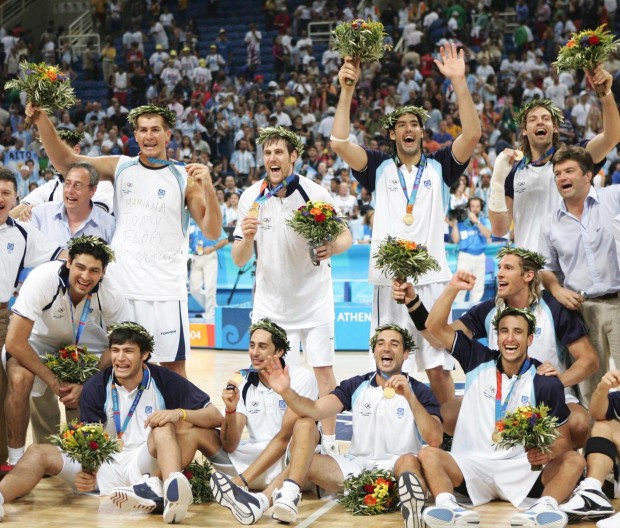
Andreas Rentz/Bongarts/Getty Images
The 2004 Olympics, like every Summer Olympics, were supposed to be a coronation for the American men’s basketball program. But 2004’s loaded U.S. team (featuring LeBron James, Dwyane Wade, Tim Duncan, and Allen Iverson), lost 89–81 to the Argentine team led by Luis Scola and Manu Ginobili. The loss was a serious blow to the U.S. team’s prestige—and the pain didn’t start to fade until 2008’s “Redeem Team” got back over the hump to win a gold medal in Beijing.
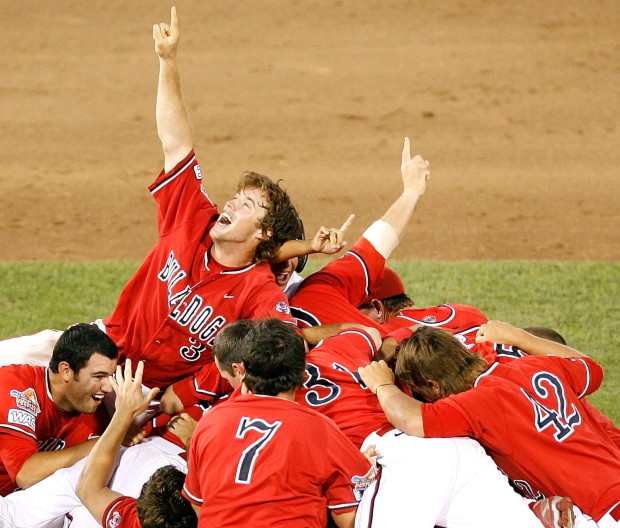
Kevin C. Cox/Getty Images
The Bulldogs became the most improbable College World Series winners ever when the little WAC program ran through a postseason gauntlet of Long Beach State, San Diego, Arizona State, Rice, North Carolina, and Georgia to win the national title. The conference they played in essentially ceased to exist after conference realignment swept it away a few years later, though it’s since been reconstituted. But Fresno’s national title banner flies forever, and it stands as the biggest college baseball upset ever.
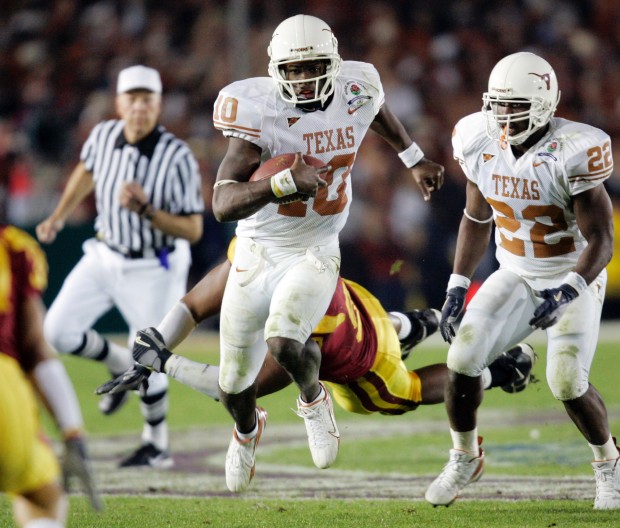
Jamie Schwaberow/NCAA Photos via Getty Images
Many say this was the greatest game in college football history, and they have a point. In the 2005 season’s national championship game, unstoppable dual-threat quarterback Vince Young (above) led Texas against a USC team that had not lost a single game in two seasons. USC, the favorite, led in the fourth quarter and tried to clinch the game on a fourth-and-one carry with power tailback LenDale White. The Longhorns stacked him up and got the ball back to Young, who went right to work. Young’s winning touchdown run on fourth-and-five is an all-time memory, as is broadcaster Keith Jackson’s call: “He’s going for the corner…. He’s got it.”
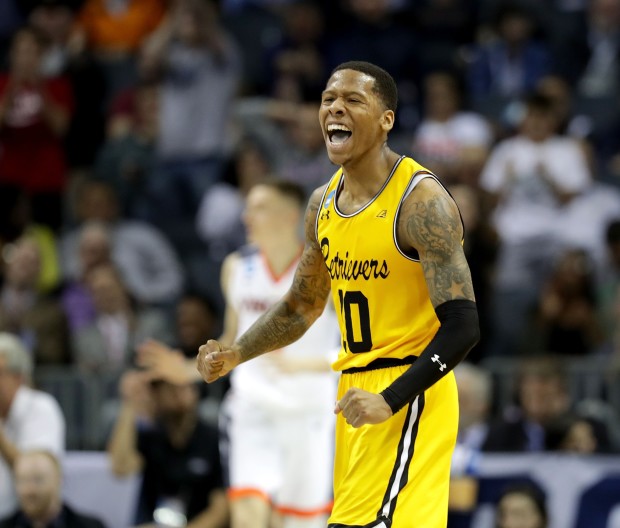
Streeter Lecka/Getty Images
There’s nothing like the first time. The NCAA men’s basketball tournament went from 1939 through 2017 without a single No. 16 seed beating a No. 1 seed. That’s overstating things a bit—the tournament didn’t even have 16th seeds until 1985—but still: The Maryland–Baltimore County Retrievers did something that had never been done before when they dispatched the Cavaliers, 74–54, to open 2018’s tournament. UVA couldn’t stop UMBC guard Jairus Lyles (pictured above) and couldn’t get out of neutral all night on offense. Meanwhile, UMBC made history.
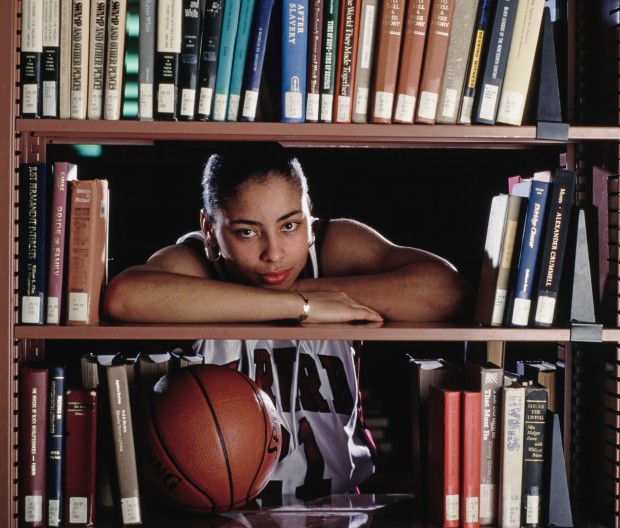
Damian Strohmeyer/Allsport/Getty Images
The women’s tournament got a 16-over-1 upset 20 years before the men’s event did, when Harvard took advantage of some Stanford injuries and managed a 71–67 win in the first round. Harvard had the country’s top scorer, forward Allison Feaster (pictured above), and she picked the Cardinal apart before going on to an extensive and successful WNBA career. Every huge upset in NCAA tourney history followed in Harvard’s footsteps.
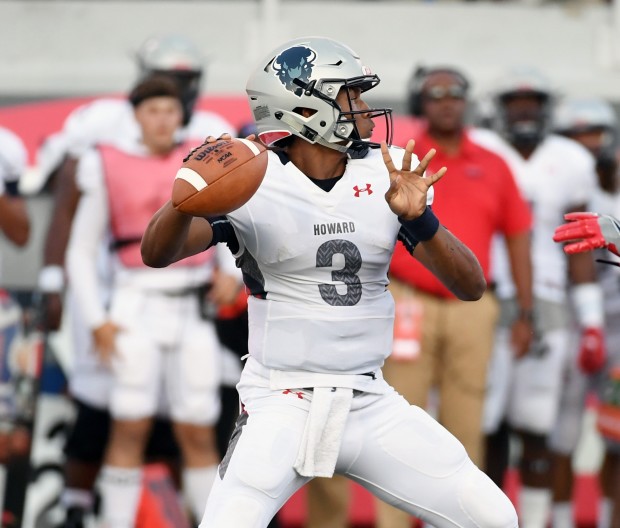
Ethan Miller/Getty Images
There are different ways to make an incredible upset, and not all of them have to come in high-profile moments with postseason glory on the line. In this case, Howard was a 45-point underdog to a lousy UNLV team on the road in the first week of the 2017 season. The Bison won, 43–40, and etched themselves into history as the biggest point-spread underdog winner in American football history—and that includes both the college and pro levels.
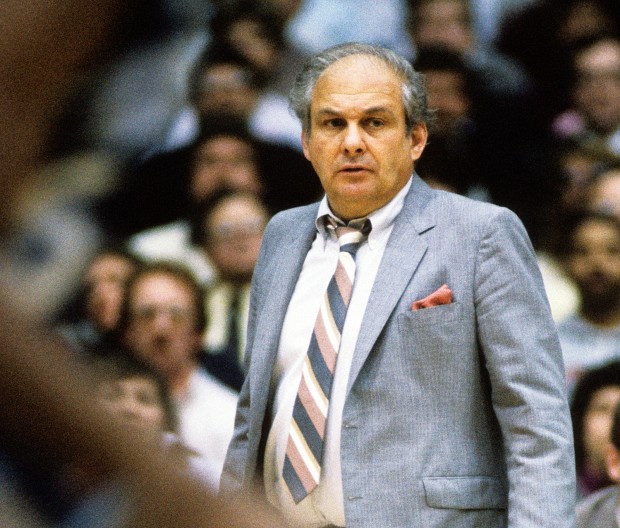
George Gojkovich/Getty Images
The Wildcats, led by head coach Rollie Massimino (pictured), won their first national championship when they beat the John Thompson-coached, Patrick Ewing-led Hoyas in the title game. Georgetown carried a 35–2 record into the game and was aiming for a repeat after winning its first title in 1984. Most analysts expected the Hoyas to win as a No. 1 seed going up against No. 8 Nova. But Villanova managed a close 66–64 victory, paced by 17 points from Dwayne McClain and another 14 from Harold Jensen off the bench. Thompson’s Hoyas remained excellent for years, but they never won another title after Villanova snatched away this golden repeat opportunity.

Bettmann/Getty Images
Few upsets rival the magnitude and the local significance of the 1960 World Series, and even today it stands as a testament to the unpredictable nature of America's pastime. Against all odds, the underdog Pirates emerged victorious, toppling the mighty Yankee empire on maybe the most famous home run in baseball history: the Game 7 walk-off by light-hitting Pittsburgh second baseman Bill Mazeroski (pictured above). That dramatic ending solidified the ‘60 Series as one of the greatest upsets in sports history.
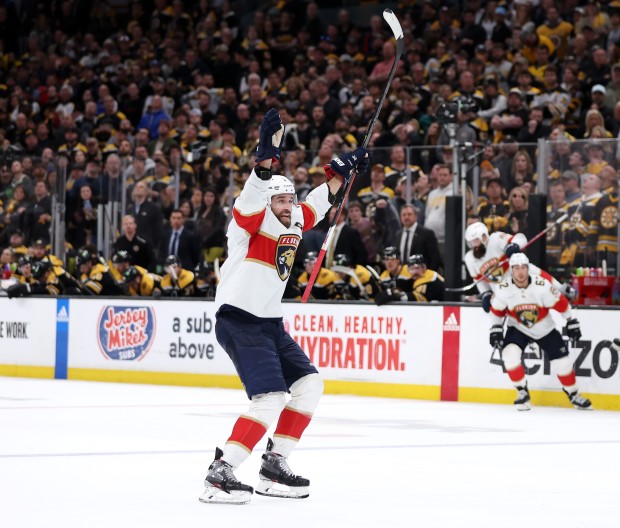
Maddie Meyer/Getty Images
This upset is a recent entry to this list, but it’s a critical one. The Bruins ended the 2022-23 season with the best record in NHL history by both wins (65) and total points (135). In addition, they had a 3–1 series lead against a Panthers team that only snuck into the playoffs when the Pittsburgh Penguins imploded in the season’s final days.
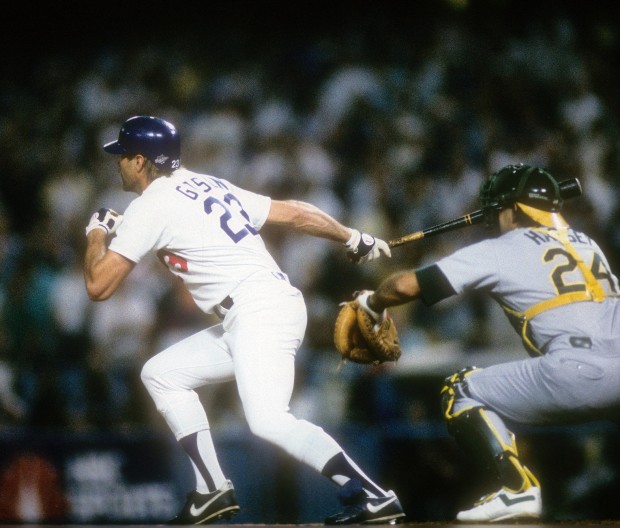
Focus on Sport/Getty Images
The A’s were heavy favorites in the 1988 World Series. They had won 104 games that season, and their lineup was headlined by comically powerful hitters Mark McGwire and Jose Canseco. The Dodgers had a good team, but they weren’t as dominant, and they had to pull off an upset over the New York Mets in the National League Championship Series to even reach the Fall Classic. Once there, however, they blitzed the A’s—after an injured Kirk Gibson hit a walk-off home run in Game 1 (photo above), the Boys in Blue never looked back.
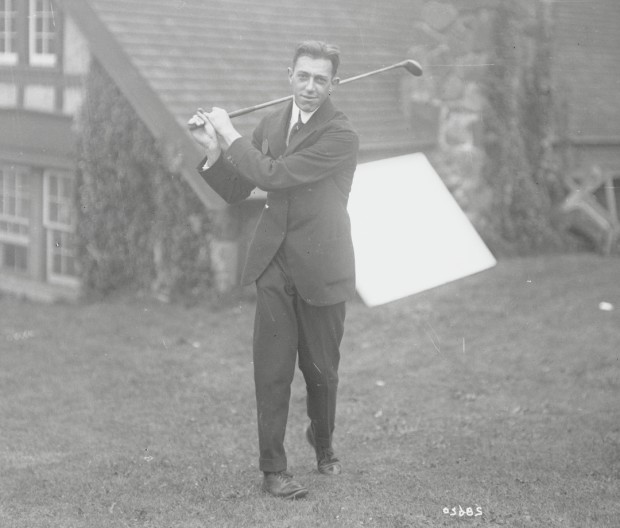
Bettmann/Getty Images
Ouimet (that's him above), a 20-year-old amateur with a 10-year-old caddy on his bag, was not even supposed to be near contention at the Country Club, site of the national championship in 1913. But he stitched together golf’s ultimate underdog story and managed a playoff victory over Vardon and Ray, two of the greatest professionals of the era. Ouimet became the first amateur to win the U.S. Open, and though there were a few more amateur winners in the ensuing 20 years, there’ll never be a story like his again.
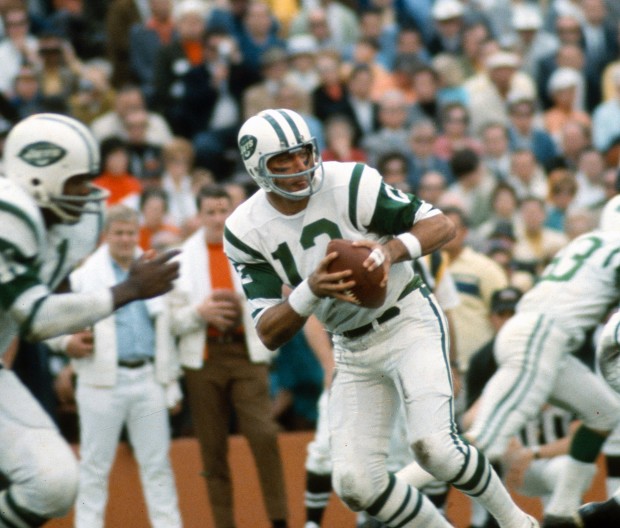
Focus on Sport/Getty Images
Super Bowl III had all the ingredients for a dramatic storyline. The Colts were the dominant team of the moment in professional football, with a 13–1 record and Johnny Unitas at quarterback. The Jets represented the upstart American Football League, which would later merge with the National Football League in 1970 to form the modern NFL. The Jets had a brash young QB named Joe Namath who guaranteed victory in the press before the game. Namath (and the Jets’ defense especially) backed up that talk and won 16-7, solidifying the AFL as a serious presence in the new NFL and anointing Namath as a major figure in American football history.
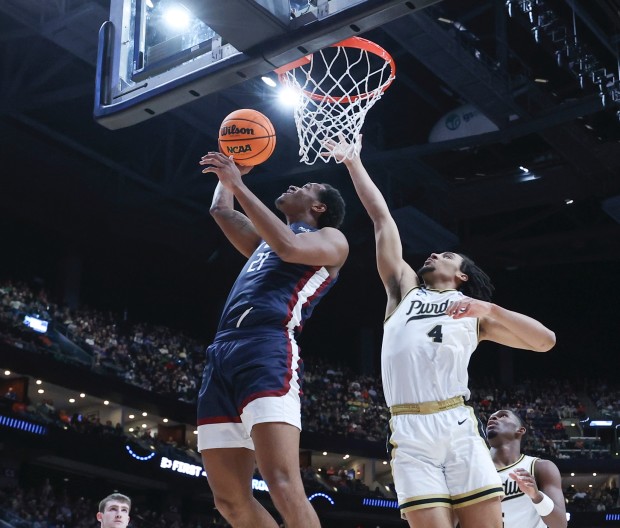
Andy Lyons/Getty Images
By a whole wide range of metrics, the loss the No. 1 seed Boilermakers took to the No. 16 Knights in 2023’s March Madness was the worst in college hoops history. The Knights weren’t just a 16-seed—they were a 16-seed that only made it into the tournament on a technicality (the best team in their conference wasn’t eligible for postseason play). They were also the smallest team in Division I, and yet they managed to beat one of the tallest, led by Purdue’s towering 7’4” center Zach Edey. We may never see an upset of this magnitude again.

Leon Halip/Getty Images
This is the archetypal college football upset in a sport built on upsets. The Mountaineers were an excellent team, having won the Football Championship Subdivision national championship in 2005 and 2006. In fact, when this game happened, they were a few months away from three-peating in 2007.

Icon Sportswire/Getty Images
At the start of this game, the Patriots had everything going for them, or seemed to. After a 16–0 regular season, New England cruised through the AFC playoffs and only had to beat the Giants, a wild card team, to become the only 19–0 champion in NFL history. The Patriots led at the end of the fourth quarter, but Eli Manning engineered a stunning comeback drive to send the Lombardi Trophy to New York. The drive’s key play was a chaotic, scrambling heave that led to David Tyree’s famed “helmet catch,” and then Plaxico Burress caught the winning score with 35 seconds left.

B Bennett/Getty Images
In 1980, the Soviets had the best hockey team in the world, and everyone knew it. The Americans had a scrappy bunch of kids with a bit of talent and a good motivator, Herb Brooks, as head coach. On paper, the U.S. Hockey Team didn’t seem to have a chance.
from Men's Journal https://ift.tt/kl6ZYd2
No comments:
Post a Comment